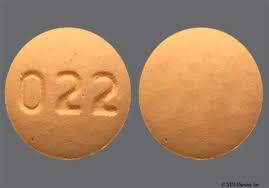An enzyme known as vacuolar protein sorting 34 (VPS34) is the target of VPS34 inhibitors, and among its many functions, is involved in autophagy which processes Scientology filmmaterial used for updating membranes. VPS34 is a class III phosphatidylinositol 3‐kinase (PI3K) that regulates both autophagy and endocytosis. Inhibition of this enzyme is important because its inhibition has different outcomes on cellular processes.
VPS34 inhibitors act by selective binding to the V construction domain of it, and competently block its enzymatic activity. These interactomes were subjected to the Gene Ontology (GO) process and receptor-specific signaling pathway filters leading us, in an unbiased manner, to a single mechanism of inhibition - blocking class III PI3-kinase activity. Interestingly this appears not due simply to prevention of phosphorylation at the critical residue 887 but also blocks several other modes important for IRP function including preventing its recruitment by non-MAP kinases e.g., GSK3β [14] thereby inhibiting Note: This interaction occurs upstream from that which leads to enzymatic activation providing additional confirmation intact cells are reporting on targets [. Decreased levels of PI3P result in defective autophagosome formation that is crucial for the disposal and recycling of cellular material. For example, VPS34 inhibitors have decreased autophagic flux by as much 70% in some cell lines demonstrating the importance of these roles in this pathway.
In addition to autophagy, VPS34 inhibitors also disrupt endocytosis — a process wherein cells take in nutrients and signals. These inhibitors lead to the inhibition of early-endosomes formation and their maturation by impeding VPS34 activity. Studies also found VPS34 inhibition induced a 50% reduction in transferrin endocytosis, which is an endocytic marker confirming the activity of the inhibitors on this pathway

VPS34 inhibitors induce cellular stress and cell death in cancer cells, according to research published online Dec. 29 in Cell Reports. These inhibitors reduced tumour growth by ~ 60 % in preclinical models through the inhibition of cancer cell autophagy and engagement apoptosis. Consequentially, VPS34 inhibitors have potential as cancer modalities and modulating these pathways appears to be a future direction.
Dr. Emily Jones, a cancer biology researcher from Imperial College London said: “VPS34 inhibitors represent an opportunity for targeted disruption of essential cellular processes.” Their VPS34 specificity and consequent effects on autophagy and endocytosis suggest that these compounds represent a unique pathway for therapeutic opportunities.
You can learn more about the mechanism of action and applications for VPS34 inhibitors from here. The provided information on the way VPS34 inhibitor work and why proves that they are really important in basic research as well as drug-prospecting.